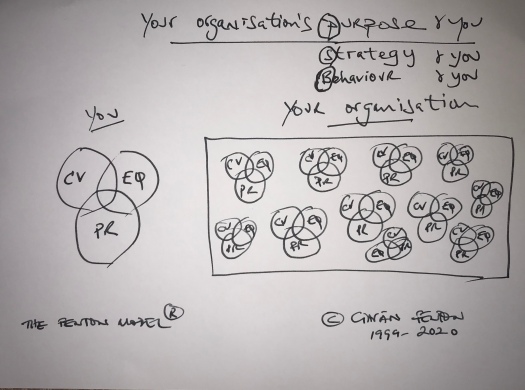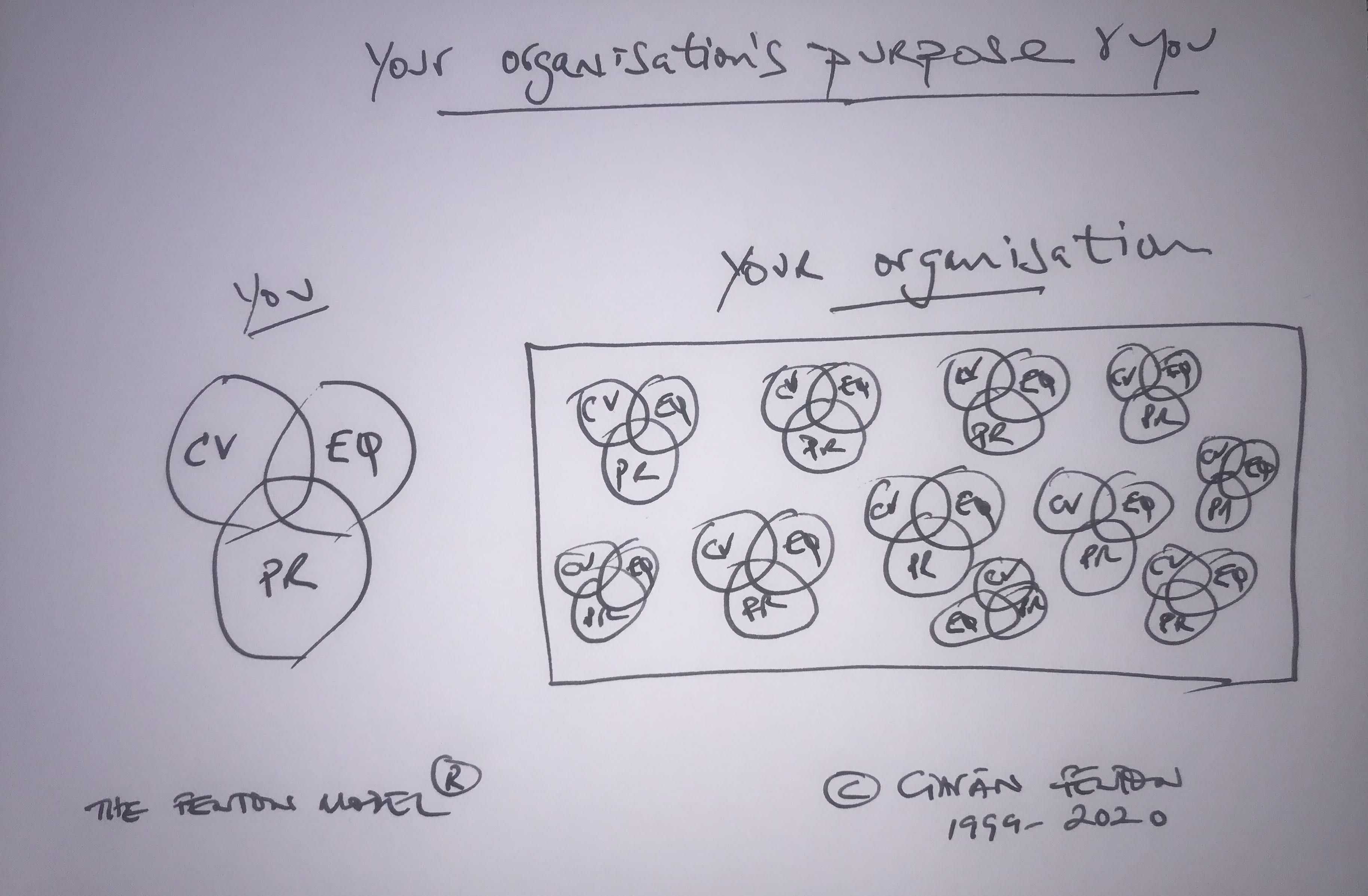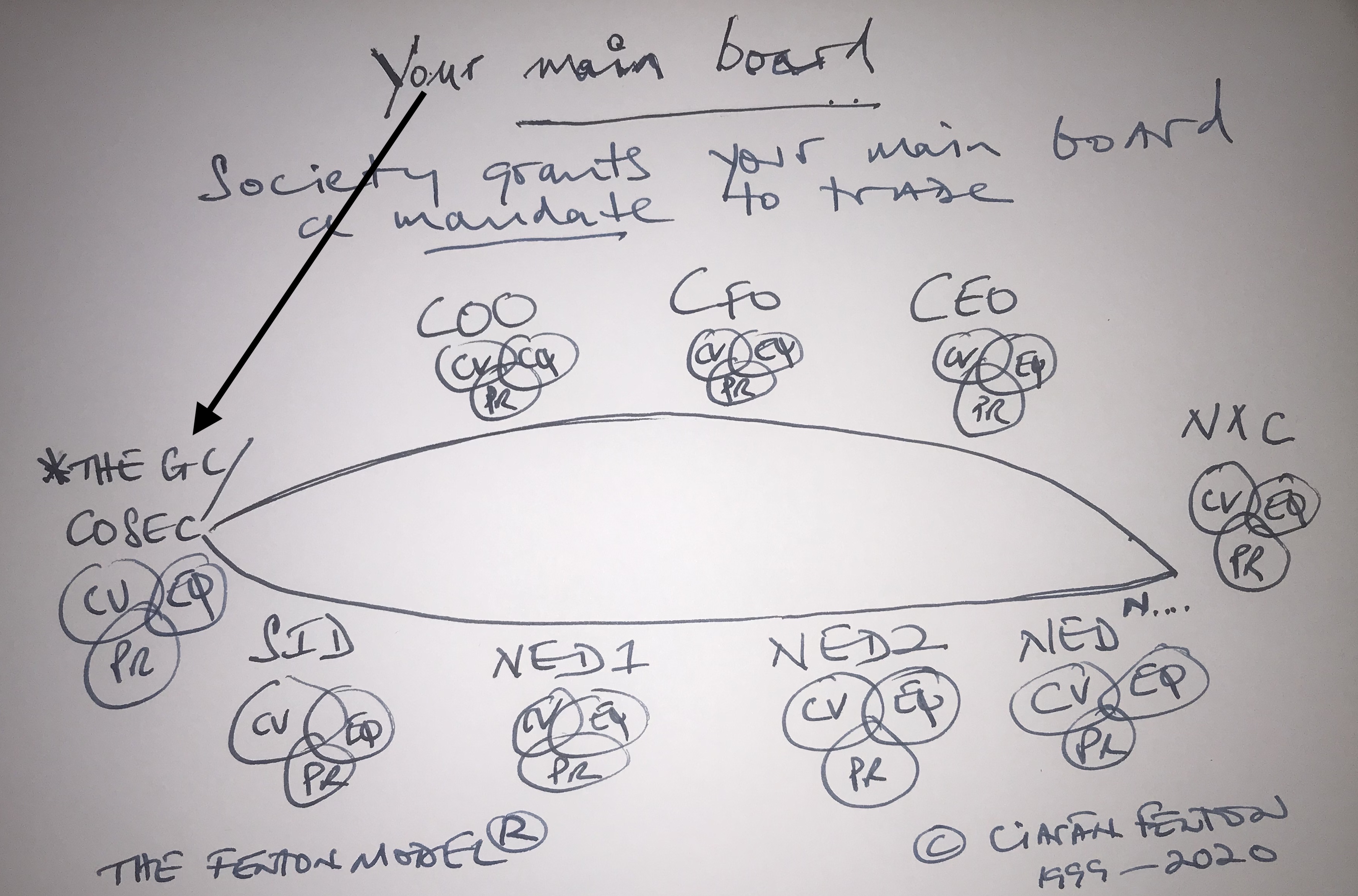
Your organisation’s behaviour consists of those actions it takes and avoids, consciously or unconsciously, to implement its strategy to achieve its purpose,
Conscious actions include the implementation of business plans including sales and marketing plans and target operating models.
Target operating models identify market needs, “strategic” resources and processes to implement those resources to meet the market needs.
Unconcious and avoidance behaviour includes all those actions which are not taken in respect of the implementation of the organisation’s strategy.
These can be positive or negative: focusing on one market segment involves positively avoiding others whereas refusing to listen to customer feedback and complaints is negative avoidance.
Behaviour is a plural noun and, although the word “behaviours” has become common in business and in psychology I believe that for the purposes of behaviour change the plural noun is better. This is not a semantic point.
As mentioned several times in this book already, the language of business is deeply connected with behaviour.
Terms such as “employee engagement”, ‘hires”, and “direct reports” are all examples of business attempting to dehumanise, categorise and distance itself from feelings.
It’s easier to talk in abstract terms about a list of “behaviours” like bullying, passive aggression and “buck-passing” that can be “ticked” rather than engaged within the messy and grey area of behaviour which is complex, usually rooted in formative years’ experiences, and defies neat lists.
Evidence of this exists in the financial services sector in the aftermath of the Global Financial Crash in 2008 which was caused by the unethical behaviour of those with power across the globe in that sector.
When the dust settled the word “conduct” became ubiquitous in the financial services sector. Conduct is defined as behaviour over time and, rightly, regulators wanted to attempt to regulate conduct as it had led to the Crash.
In the UK the Financial Conduct Authority was set up in 2013. There’s a clue in its name as to its purpose, although many might argue that its strategy and behaviour failed to address the issues fully since the annual Banking Standards Board reports note that there has been little change in behaviour since the Crash.
The behaviour that has the biggest impact on outcomes is decision-making behaviour and this can be observed in action on main and operating boards (OPsCos) and Executive Committees (ExCos).
There is nothing complicated about ensuring good decision-making behaviour:
- have at least one Devil’s Advocate with permission to challenge everything
- ensure that ALL the function heads are involved in the decision
- track your decisions and outcomes, candidly review them and learn from them
Here is a list of seven deadly behaviour sins I have observed on boards:
- Bullying: there’s always one thug or, at least, a trainee thug on a board
- Passive aggression: lots of this
- Silence: a sure sign of systemic fear
- Micro-management: a sign of trust problems
- Martyrdom: in Ireland, we say “there’s a fierce smell of burning martyr in the room”
- Hubris: this is deadly and can kill an organisation
- Informality: leads to poor corporate governance
Which if these do you observe in your board? What can you do about it?
The key is to change yourself first, just small changes:
- If you’re a bully, bully less by trying to understand why you bully
- If you are passive-aggressive risk occasional confrontation; note that you don’t die
- If you usually remain silent try speaking up once a month and see what happens
- If you micro-manage, agree a “soft” contract with a colleague to reduce your micro-managing behaviour by 10% in exchange for they changing their behaviour by 10%
- If you’re a martyr: treat yourself to a period of doing nothing
- If you suffer from hubris: stop it!
- If your meetings are too informal read the FRC Governance Code 2018 and Guidance
That’s it.
Sorted.
Joke. Not sorted. Behaviour change is very hard.
But small changes in behaviour in aggregate can have a big impact on outcomes.
Try it.










